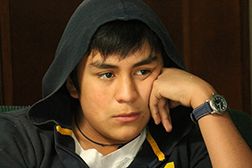

When the Normal Happens to My Child, Part 1
Source/Author: Headmaster Mike Murphy
March 11, 2016
Even the best of children may forget an assignment, do poorly on a test or quiz, or get into a fight. Those same great children may even get a detention, try a cigarette, experiment with alcohol, or engage in sexual activity. Even though the Center for Disease Control shows that many of the physical and emotional high-risk behaviors have declined since the 1980’s, we as parents are often shocked when our children are exposed to or participate in behaviors that we would prefer they delay or avoid completely.
When discussing teenage use of alcohol, drugs or sex, parents inevitably feel concern, alarm and fear. Beyond the potential physical harm of these activities, parents fear that these behaviors prompt social-emotional issues as well. And the research is crystal clear on these issues. The longer people delay or abstain from the use of alcohol and drugs, the better the chance of avoiding high-risk behavior and addiction. The research is similarly clear about sexuality. People who delay sexual activity tend to have healthier personal relationships and attitudes regarding sexuality and respectful partnerships.
As normal as it is for teens to be tempted by many high-risk activities, it is also normal for parents, guardians and caregivers to be tempted to avoid these conversations with their children.
Yet, the majority of teens do delay high-risk behaviors with drugs and alcohol and the majority do not engage in casual or abusive sexual activity. Likewise, there are many parents/guardians who have created home environments where it was safe and normal to discuss the life events their children could encounter.
While children often say, “My parents are going to kill me!” our children need to know that we will be reasonable when a normal life event occurs. As unfortunate as it is that children focus on the punishment instead of the mistake, the real concern is that a child has it in his/her head that mistakes may not be forgiven.
I just finished reading “American Dervish.” The book will not be ruined for you when I write that there is a profound act of forgiveness in the story, much like the scene of reconciliation in the movie “Mission.” Both scenes show the power and strength one can give to another when forgiveness is offered.
I share the fears of many parents and guardians when I learn of the dangerous behaviors in which our children engage. Yet, I believe that beyond having clear expectations and supervision, we need to create environments where children and adults can communicate openly and support each other in this important work of rearing the next generation of leaders.
Cheers!
Mike
























